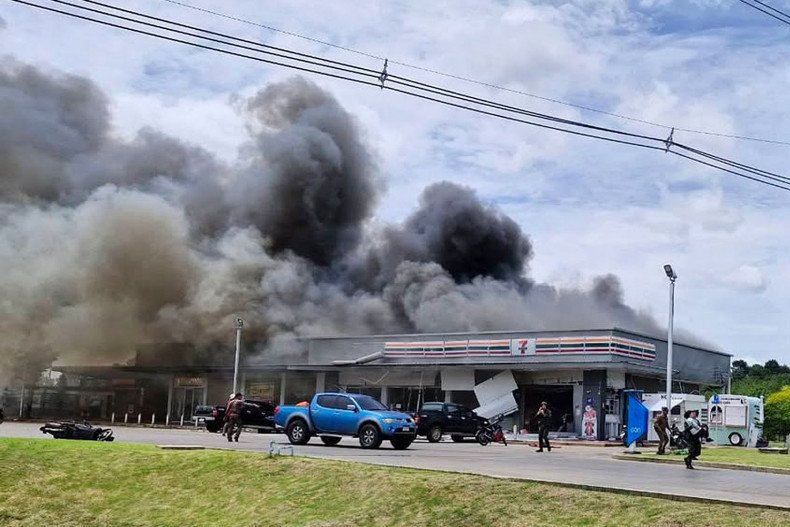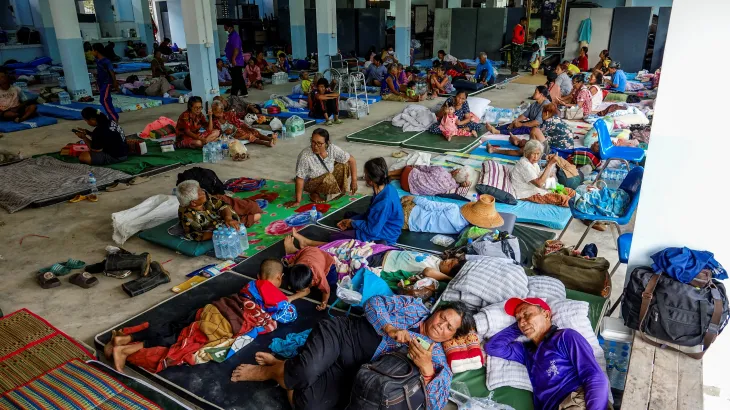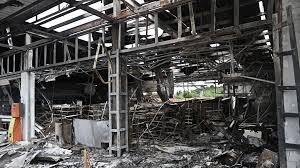Dr. Baber George – North Carolina, USA, IUDHR

Introduction: War Fuels a Growing Humanitarian Crisis
The Thailand vs. Cambodia war 2025 has rapidly escalated into one of Southeast Asia’s most alarming conflicts in recent years. What began as a border dispute has now erupted into a full-blown humanitarian crisis, leaving over 170,000 civilians displaced and dozens dead. As the conflict widens, the Implementation of Universal Declaration of Human Rights (IUDHR) is especially concerned about the humanitarian consequences that continue to spiral out of control.

Root Causes: A Conflict Shaped by History and Politics
Understanding the humanitarian emergency requires a look into the historical and political tensions fueling the war.
Colonial Legacy and Border Disputes
The conflict’s roots lie in the colonial-era border demarcations, particularly concerning the Preah Vihear Temple, a sacred 11th-century site. Despite the International Court of Justice (ICJ) ruling in favor of Cambodia in both 1962 and 2013, Thailand continues to dispute the temple’s surrounding territory.
Recent Escalations
Tensions erupted in July 2025 following a series of deadly incidents:
- A Cambodian soldier was killed in the Emerald Triangle.
- Thailand launched airstrikes in response to escalating border clashes.
- Both nations downgraded diplomatic ties, with ambassadors recalled.
- Over 130 injuries and 32 deaths were reported by July 26.

Humanitarian Consequences: The Real Toll of War
The humanitarian crisis is worsening by the day. With over 170,000 displaced persons, thousands are now without shelter, access to clean water, or medical care.
Mass Displacement
- 138,000 Thai civilians have been evacuated from conflict zones.
- 35,000 Cambodians have fled their homes in fear.
- Refugee camps are overwhelmed and lacking resources.
Civilian Casualties and Infrastructure Damage
- Civilian areas, including hospitals and religious sites, have been struck.
- Both countries accuse each other of violating international law by using banned weapons such as cluster munitions.
- Children and elderly civilians remain particularly vulnerable.
Trade Disruption and Economic Impact
- Border closures have halted critical trade corridors, devastating local economies.
- The ongoing violence threatens regional stability in ASEAN countries.
International Response: Diplomatic Appeals and Mediation Offers
The global community is watching with concern as the humanitarian toll deepens.
- The United Nations Security Council (UNSC) held emergency talks urging restraint.
- Malaysia and China have offered mediation under the ASEAN framework.
- Cambodia accepted a ceasefire proposal, while Thailand prefers bilateral negotiation.
- The U.S., U.K., China, and Japan have called for de-escalation.
IUDHR’s Appeal: Ceasefire Now to Avert Greater Catastrophe
The IUDHR strongly believes that the current crisis demands urgent international intervention. The ongoing Thailand vs. Cambodia war 2025 is not just a political dispute — it is creating a severe humanitarian crisis that continues to displace and endanger tens of thousands of innocent lives.
A Call for Moral and Humanitarian Responsibility
We must ask:
Who will be responsible for the 170,000+ displaced people?
Who will care for the wounded and the children growing up in war zones?
The time to act is now. We at IUDHR make a strong international appeal to all governments, human rights bodies, and global citizens to support a comprehensive ceasefire and protect the innocent.
Conclusion: Humanity Must Prevail
The Thailand vs. Cambodia war 2025 has already taken too many lives and displaced far too many people. The humanitarian crisis it has unleashed cannot be ignored. IUDHR urges the global community to stand united, prioritize diplomacy, and demand an immediate ceasefire.
We appeal for peace, not politics.
We advocate for humanity, not hostility.
And we fight for justice, not just resolutions.
Dr. Baber George from North Carolina, USA
CEO/President/International Ambassador of IUDHR
Website: www.iudhr.org | Email: ceo@iudhr.org
